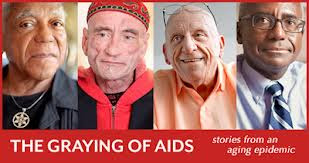US: Bill to lift ban on HIV positive organ donation passes House committee
A bill which could eventually allow the donation of HIV positive organs to HIV positive recipients has passed the House after having passed the US Senate back in June.
The HIV Organ Policy Equity Act (HOPE), which is sponsored by both Democrats and Republicans would allow organs from HIV positive people to be donated to HIV positive recipients, and more so would allow researchers to study the safety of such practice.
The Human Rights Campaign also commended the passage of the bill. Back in March, the HRC praised the passage of the bill in the Senate Committe, and in June it passed in the full Senate.
“The HOPE Act represents sound public health policy,” said HRC legislative director Allison Herwitt. “The action by the House Energy & Commerce Committee is a major step forward in removing an outdated barrier which impedes access to lifesaving transplants for persons living with HIV and AIDS.”
The bill was sponsored by Representative Lois Capps.
HIV-positive patients in the US have been lobbying for the right to receive HIV-infected transplant organs for some time. They argue that there are hundreds of HIV-infected organs available every year and that making the change would save lives and give more people the chance of a transplant.
There are more than 100,000 actively waiting for life-saving organs, and around 50,000 more are added annually, and lifting the ban could decrease waiting time for all.
Allowing organs from HIV positive donors to HIV positive recipients with liver or kidney failure could save up to 1,000 people each year.
The ban on HIV positive organ donation was put in place in 1988, and aruments for it being lifted come partly from the fact that the treatment of HIV and AIDS has advanced significantly since.
The Centers for Disease Control issued draft Public Health Service Guidelines in September 2011, recommending research in this area, but said that in the US, federal law blocks it from taking place.
Over 40 medical and patient advocacy groups endorse the act, including the United Network for Organ Sharing, which manages the US’s organ transplant system.
The HIV Organ Policy Equity Act (HOPE), which is sponsored by both Democrats and Republicans would allow organs from HIV positive people to be donated to HIV positive recipients, and more so would allow researchers to study the safety of such practice.
The Human Rights Campaign also commended the passage of the bill. Back in March, the HRC praised the passage of the bill in the Senate Committe, and in June it passed in the full Senate.
“The HOPE Act represents sound public health policy,” said HRC legislative director Allison Herwitt. “The action by the House Energy & Commerce Committee is a major step forward in removing an outdated barrier which impedes access to lifesaving transplants for persons living with HIV and AIDS.”
The bill was sponsored by Representative Lois Capps.
HIV-positive patients in the US have been lobbying for the right to receive HIV-infected transplant organs for some time. They argue that there are hundreds of HIV-infected organs available every year and that making the change would save lives and give more people the chance of a transplant.
There are more than 100,000 actively waiting for life-saving organs, and around 50,000 more are added annually, and lifting the ban could decrease waiting time for all.
Allowing organs from HIV positive donors to HIV positive recipients with liver or kidney failure could save up to 1,000 people each year.
The ban on HIV positive organ donation was put in place in 1988, and aruments for it being lifted come partly from the fact that the treatment of HIV and AIDS has advanced significantly since.
The Centers for Disease Control issued draft Public Health Service Guidelines in September 2011, recommending research in this area, but said that in the US, federal law blocks it from taking place.
Over 40 medical and patient advocacy groups endorse the act, including the United Network for Organ Sharing, which manages the US’s organ transplant system.

